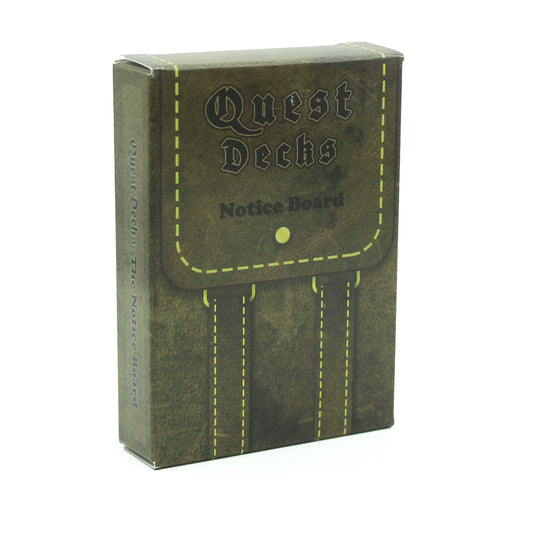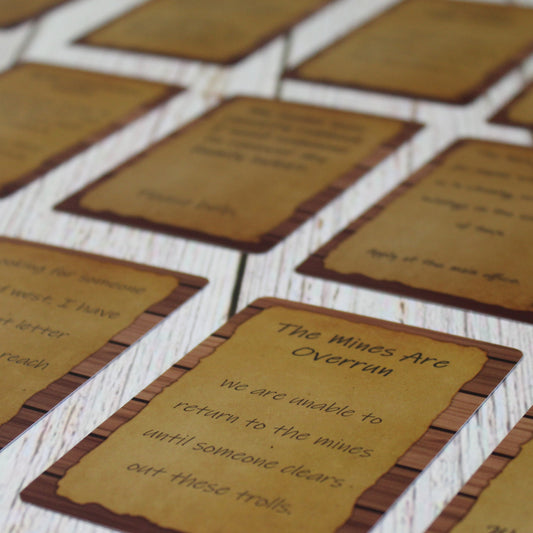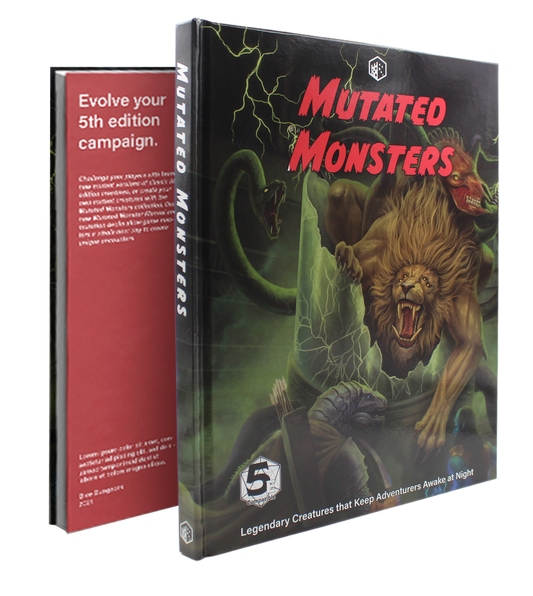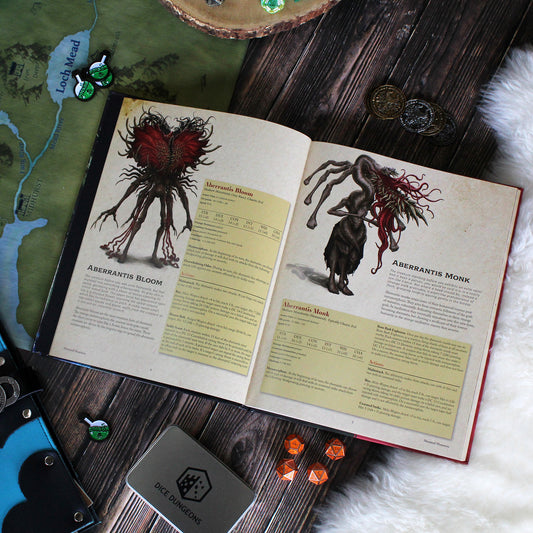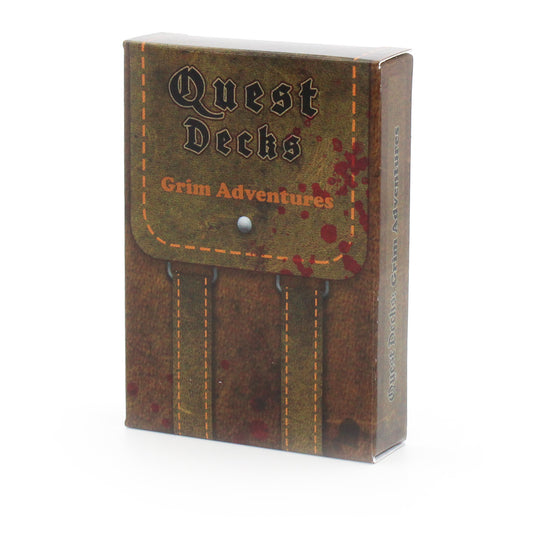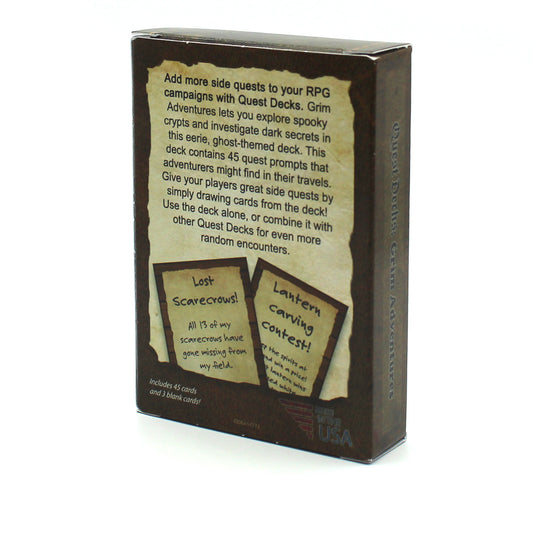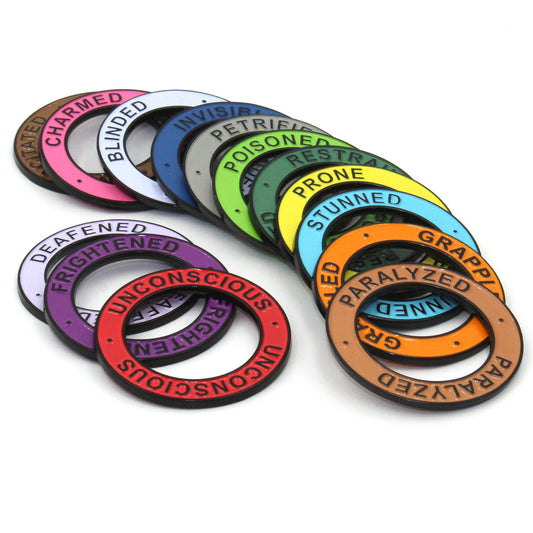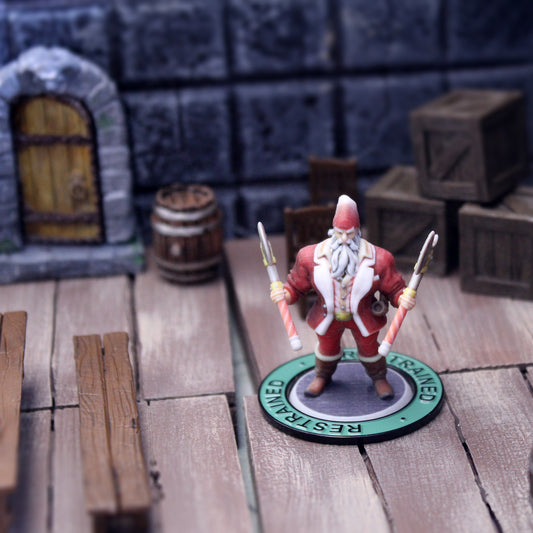Hello, fellow GMs, and welcome to another GM's corner, brought to you by Dice Dungeons. Grab a potion, cozy up by the fire, and listen: LET'S TALK ABOUT PREP, BABY.
What is prep?
Prep will vary by game, but I'm defining it here as anything that you, as a GM/facilitator/owner of the books, do ahead of a play session. While discussions on the kind of prep involved in world building and setting creation will take place in future pieces in the GM's Corner, today we're going to discuss the session-to-session variety of prep (and how we can do it effectively).
Why do we prep?
 There is a line of thinking which, though more prevalent in older generations of TTRPG players, still exists in today's climate: Prep Everything. I like to call this 'The Gygaxian Model of Prep', or 'The Way of Gygax'. The thinking is this: if you prep everything, you are prepared for anything. And, to be fair, that is true… mostly. Prepping an entire world, region, city, whatever, will certainly flesh things out in your campaign and, once completed, will significantly reduce something I've termed GM Panic™.
There is a line of thinking which, though more prevalent in older generations of TTRPG players, still exists in today's climate: Prep Everything. I like to call this 'The Gygaxian Model of Prep', or 'The Way of Gygax'. The thinking is this: if you prep everything, you are prepared for anything. And, to be fair, that is true… mostly. Prepping an entire world, region, city, whatever, will certainly flesh things out in your campaign and, once completed, will significantly reduce something I've termed GM Panic™.
However...
Aside from being massively time consuming, ‘The Way of Gygax’ has one major drawback:
There is no way you can prep for every scenario.
Ask any GM and they'll know exactly why this is: players will take actions that you hadn't considered. This is a big part of the fun that comes from playing an RPG with other humans, and something I'll probably cover in more detail in a later edition. However, when this happens while using The Gygaxian Model of Prep, you are left with three options:
- Say 'No' and disallow it, outright.
- Say 'Yes' but nudge the players back into what you've prepped
- Say 'Yes' and improvise
Option 1 is a terrible choice: you're completely removing player agency, and it's going to set a bad tone for the session/campaign.
Option 2 isn't much better, because you're just being sneaky about taking away player agency. Also, crafty players will be able to sense your 'nudging' and might fight against it.
So, we're left with option 3 which, in the moment, feels like you prepped nothing.
What do we do now?
Let's do a little exercise, shall we? Your players (in, let’s say, a fantasy RPG) decide to find a tavern in search of information, and you haven't prepped one. I want you to close your eyes, imagine the tavern they come across, and describe the scene.
How did that go? Maybe not as hard as you thought?
The trick, here, is two-fold: relaying consistent, pertinent information and being able to do it on the spot, during a session. The first part can be solved with some information you, as a GM, should be aware of:
- What do your players want? What are their overall motivations and what do they want right now? Do they have interests or weaknesses that you can use as a hook?
- What is the setting? What are the themes you care about in this game? Are the things you are describing keeping with that setting and theme?
Being able to generate fiction on demand just takes practice. The more you practice, the more comfortable you will become.
And here’s the rub, fellow GMs: you should be doing this, to some extent, during every game.
The Way of Blank Spaces
We’ve already covered how you can prep forever, and still not feel prepared; so why don’t we leave room, from the very beginning, to write things in as we go? As long as you focus on a theme, and setting, anything that you come up with on the spot will fit into the world at large! And, the real kicker: Your players won’t know that you didn’t prep the scene/historical fact/cultural aspect ahead of time.
Prep the things that are concrete – the members of the Royal Family, pertinent histories between other kingdoms, Fronts that are occurring in the world (more on this later).
For things that could change, or don’t necessarily matter, write it as you go!
I have one more lesson for today: the Ultimate, Final, Secret Technique in ‘The Way of Blank Spaces’…
Divest authority to your players.
Have a Paladin that belongs to a specific Order? A player who has a Tabaxi character? Literally anything your players show an interest in (note: their choices during character creation) that you haven’t thought out beforehand?
ASK YOUR PLAYERS ABOUT IT. And, then, work with them to make their creative output canon to your setting.
Not only does this help you out by saving prep time and brain cycles, but it helps your players buy into the world and setting; they helped create it, after all!
In Conclusion…
The real truth is: old fashioned prep can’t really be avoided. BUT you can help yourself by improvising, or asking your players. Basically: do what you are comfortable with, but know that there are limits to what Prep can help you with.
There are many paths to walk between ‘The Way of Gygax’ and ‘The Way of Blank Spaces’: the one you choose is your own.
Next month (yes, this is now a monthly piece!): A Treatise on NPCs


